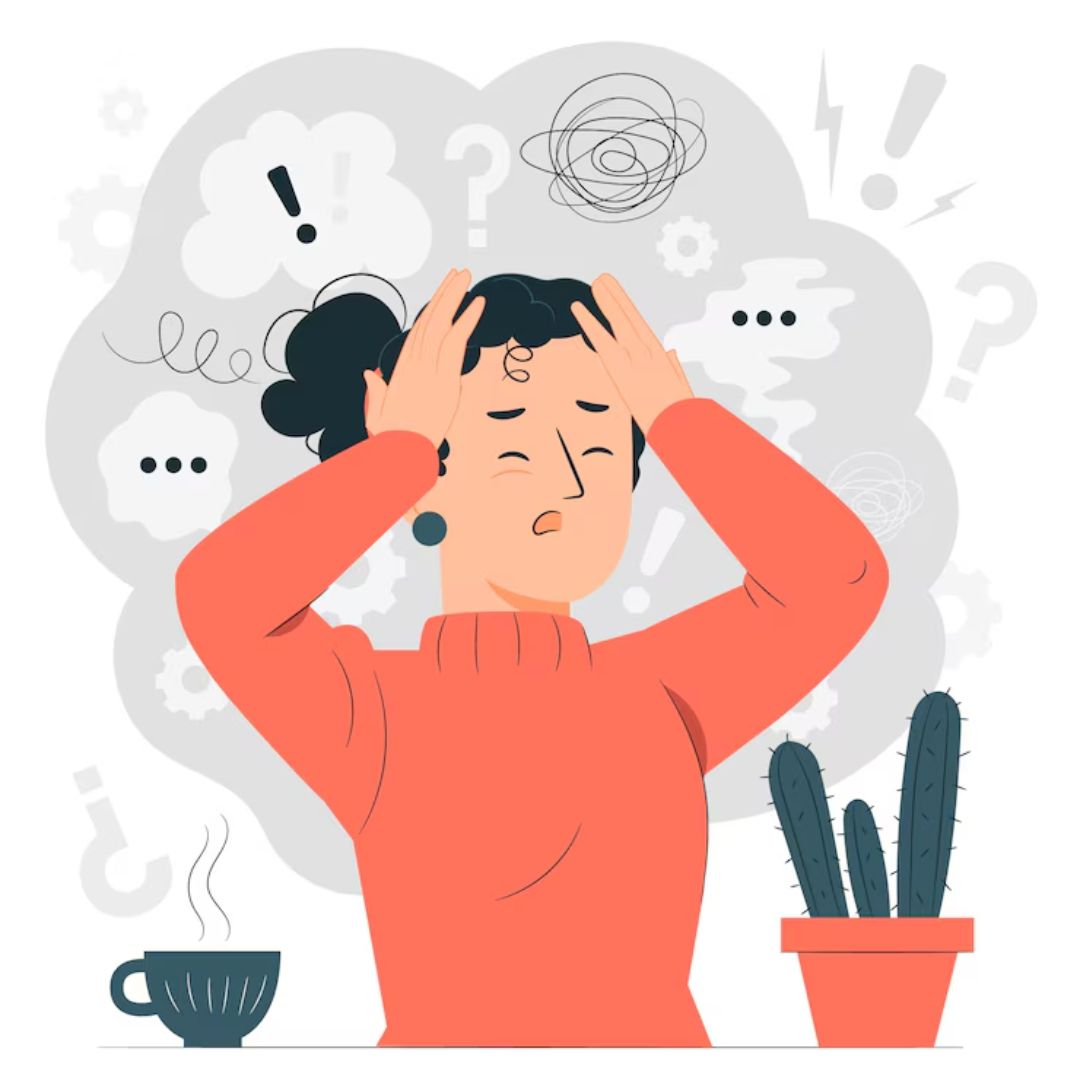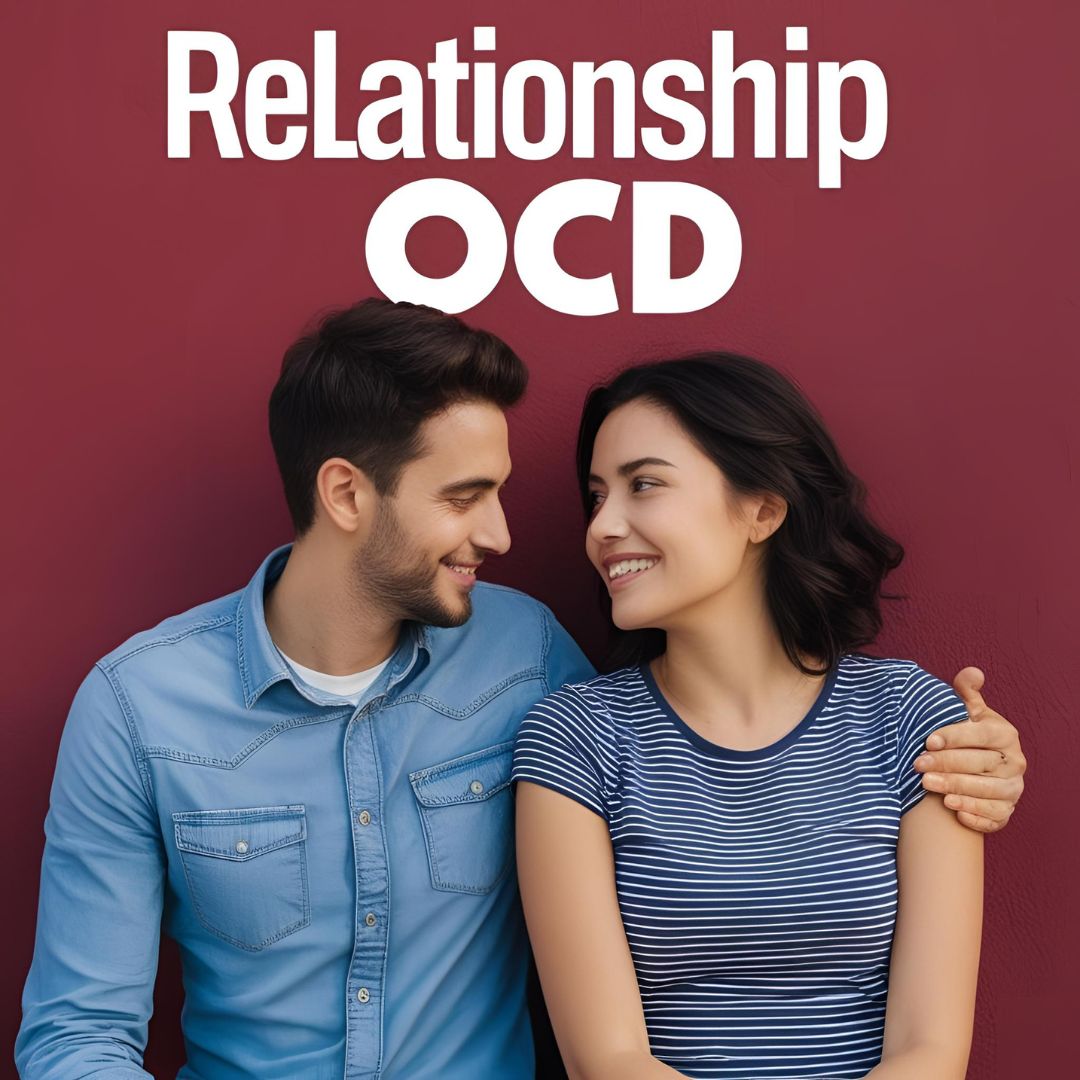LifeHetu
21 Apr 25 07:40 am
The Link Between OCD and Perfectionism - When the Quest for Perfection Becomes a Prison
How often have we mistaken being perfect and for having OCD and vice versa? This blog helps you discover the transient line between the both. With the help of virtual therapy and online counselling, you can reclaim your emotional health today!

Introduction
Have you ever heard someone say, “I’m so OCD about my work”?
You have, haven’t you? It’s a very common expression but also a deeply misunderstood one.
In India, where high academic expectations, societal comparisons, and family pride often define success, perfectionism is not just encouraged, it’s celebrated. But when this desire for flawlessness becomes rigid, exhausting, and compulsive, it may cross the boundary into Obsessive-Compulsive Disorder (OCD).
Let’s explore the tightrope between perfectionism and OCD and how LifeHetu and their team of best psychologists in India can help individuals walk it with balance.
Understanding Perfectionism: More Than Just High Standards
Perfectionism isn’t merely the desire to do well. In clinical terms, perfectionism involves setting unrelenting standards and linking one’s self-worth to achievement. It often includes:
- Fear of failure
- Extreme self-criticism
- Rigid routines and rituals
- Anxiety over making mistakes
Now, these traits may sound familiar to many high-achieving individuals. But in some cases, they become part of a more complex condition: Obsessive-Compulsive Disorder.
What is OCD, really?
OCD is a mental health disorder characterized by:
- Obsessions: Intrusive, unwanted thoughts (e.g., "Did I lock the door?" or "What if I made a mistake?")
- Compulsions: Repetitive behaviors or mental acts performed to reduce the anxiety caused by these obsessions (e.g., checking, cleaning, counting).
Contrary to popular belief, OCD is not just about cleanliness or being organized, it’s about being in control and the fear of imperfection.
OCD vs. Perfectionism: What’s the Difference?
Perfectionism is a personality trait. People with perfectionist tendencies set extremely high standards, are self-critical, and may equate failure with worthlessness.
OCD, on the other hand, is a clinical disorder involving:
- Obsessions: Intrusive, unwanted thoughts (e.g., “If I don’t check this tap five times, something bad will happen.”)
- Compulsions: Repetitive behaviors or mental acts to reduce the anxiety caused by those thoughts (e.g., repeated checking, cleaning, counting).
But here’s the twist - not all perfectionists have OCD, and not all OCD sufferers are perfectionists, but there is a notable overlap.

The Link: When Perfectionism Fuels Obsession
Scientific research shows a significant connection between perfectionism and OCD.
One major study by Frost & Steketee (1997) found that maladaptive perfectionism, where failure is feared and mistakes feel catastrophic and is often present in individuals with OCD.
Real-life example from India:
Ankita, a 25-year-old chartered accountant from Delhi, used to spend hours rechecking her financial reports. “I couldn’t submit it until it felt just right. If one comma was out of place, I’d panic.” What began as dedication soon turned into dread. It wasn’t about doing her best; it was about avoiding imagined disaster.
Eventually, her constant checking extended beyond work, she started checking if she locked the door multiple times before leaving, fearing that any error would lead to dire consequences.
A psychologist trained in treating OCD, at LifeHetu helped Ankita recognize the OCD-perfectionism link and begin a customized Cognitive Behavioral Therapy (CBT) program, a widely recognized treatment for both OCD and perfectionist thinking.
Why Does This Happen?
Let’s look at the cognitive roots:
- Perfectionism can drive intrusive thoughts (“If I make a mistake, I’ll be seen as incompetent.”)
- OCD then uses compulsions to neutralize that anxiety (“If I check this again and again, I can be sure.”)
- The need for certainty becomes a psychological trap.
According to research from the Indian Journal of Psychiatry, OCD in India is often underdiagnosed due to stigma and lack of awareness. People assume it’s just “being fussy” or “over-careful”, especially when perfectionism is seen as a strength.
Cultural Factors in India That Blur the Line
India’s cultural context adds a unique layer:
- High parental and academic pressure in school settings may normalize perfectionist behaviors early.
- Societal pressure to “perform well” in exams, marriage, career, etc., can push people into rigid routines.
- Lack of mental health education means symptoms are often trivialized or misunderstood.
This can cause individuals to suffer in silence, thinking their behaviors are signs of strong character, not symptoms of a disorder.
What Does It Feel Like?
Here are some common overlaps between OCD and perfectionism:
| Perfectionism | OCD |
|---|---|
| "I must do well to feel good about myself." | "If I don’t do this perfectly, something bad will happen." |
| "Mistakes are unacceptable." | "If I make a mistake, it could lead to disaster." |
| "I need to revise this again to improve it." | "I have to revise it again to get rid of this anxiety." |
It’s important to recognize when perfectionism stops being productive and starts being paralyzing.
Breaking the Loop: Healing Through Awareness & Therapy
The first step is understanding that you’re not alone, and that your need for perfection might be more than a personality quirk.
LifeHetu offers:
Online therapy sessions with psychologists trained in OCD and perfectionism-related issues.
CBT and Exposure Response Prevention (ERP) programs designed to help retrain the brain.
Mental wellness workshops focused on stress management and building self-compassion.
Their therapists have worked with students, professionals, homemakers, and creatives across India to dismantle this perfectionist-OCD cycle.
How LifeHetu Can Help
At LifeHetu, we understand that mental health challenges like OCD often go unrecognized in Indian households. We’re committed to:
- Online therapy with licensed psychologists trained in CBT and Exposure & Response Prevention (ERP), the gold-standard treatment for OCD
- Workshops on perfectionism and self-compassion for students and young professionals
- Mental health screening tools to help you understand your symptoms better
- Family counseling to build supportive environments at home
Through a combination of science-backed interventions and culturally sensitive care, LifeHetu empowers you to break free from the perfectionism-OCD loop.
A Better Way to Thrive
Healing doesn’t mean giving up your standards, it means learning how to hold them without them holding you hostage. At LifeHetu, the goal isn’t to “fix” you. It’s to help you feel in control, make peace with imperfection, and thrive with flexibility and joy.
Sources
Frost RO, Steketee G. Perfectionism in obsessive-compulsive disorder patients. Behav Res Ther. 1997 Apr;35(4):291-6. doi: 10.1016/s0005-7967(96)00108-8. PMID: 9134783.
Reddy YC, Rao NP, Khanna S. An overview of Indian research in obsessive compulsive disorder. Indian J Psychiatry. 2010 Jan;52(Suppl 1):S200-9. doi: 10.4103/0019-5545.69233. PMID: 21836679; PMCID: PMC3146215.

